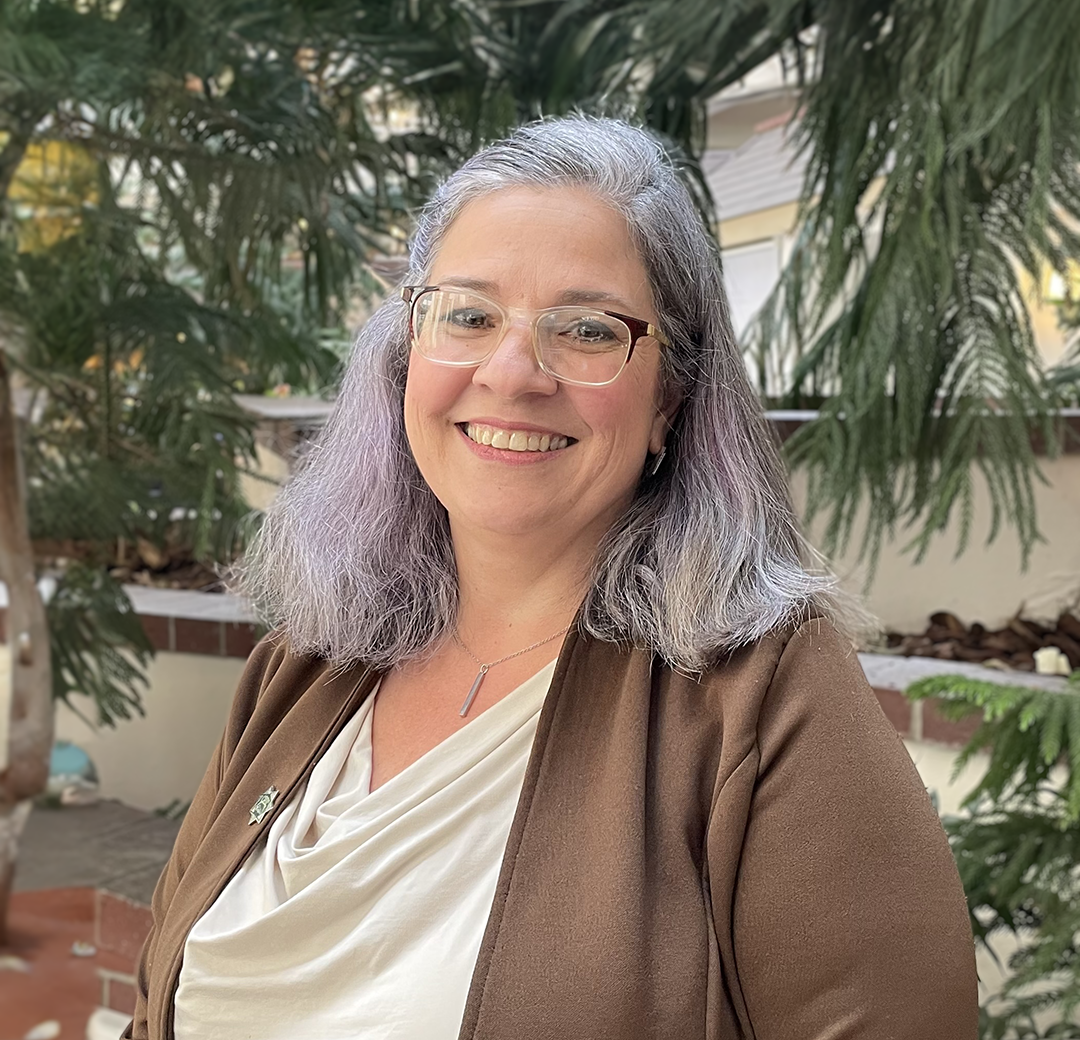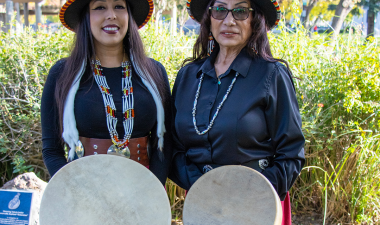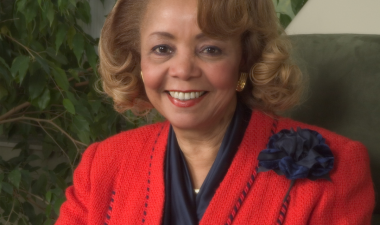When she arrived for work as Calaveras County’s Chief Probation Officer, Stanislaus State alumna Kim Craddock was greeted by a colleague whose cat needed an emergency veterinary visit. She also needed to borrow the chief’s car.
Craddock laughed about resolving the “crisis” as she sat in the office she has officially held since May, overseeing 15 officers. Work in probation is different every day, and for Craddock, it’s been different than what she imagined for herself when she graduated from the University in 1995 with a bachelor’s degree in cultural anthropology.
Remaining in the foothills, where she’d lived since the age of 2, wasn’t in her plans.
“I never intended to stay,” said Craddock, who grew up in Railroad Flat and graduated from Calaveras High School. “I wanted my son to have a stable childhood. I felt staying was what was good for him.”
In Calaveras County, she was surrounded by immediate and extended family, and her dad took care of her son when she became a single mom as a student at Columbia College.
That support enabled her to pursue her degree at Stanislaus State.
She commuted to Turlock, sometimes staying with friends rather than making the long drive as she studied a subject she’d been introduced to in high school.
“I loved it,” Craddock said. “It was just so interesting to learn about all the different cultures and how they interact and the impacts we have on each other on such a larger scale than personally.”
Applying cultural anthropology to her work, first as a deputy juvenile probation officer, then adult court officer and other roles before becoming assistant chief in 2014 and now chief, was a more logical step than it might seem.
“They talk about implicit bias now,” Craddock said. “A lot of cultural anthropology was already looking at that — how we look at other cultures, and what our bias is toward that culture. What is their bias toward us? It taught you there were differences in cultures and even in sub-cultures. Each community operates differently than our shared society. They have their differences, and you have to work with that.”
Being respectful and understanding of cultures is only part of what helped Craddock succeed in her field. Empathy and understanding for her clients were equally important.
“I enjoyed interviewing the defendants,” she said. “I learned when I talked to them long enough, I’m a probation officer because of luck. I didn’t make a wrong decision at 8 years old that led me down a path of destruction. I had good parents.
“We also worked with the victims. It was an interesting dichotomy. Sometimes it’s heartbreaking to talk to them and hear what they’ve been through. We make sure they have the services they need, and that their voices are heard in court.”
Never was it more challenging than when a friend of her son’s was killed in a motorcycle accident. He and another friend were drunk, and the friend drove over the victim after he’d crashed, although the autopsy revealed the crash was the cause of death.
“DUIs are the worst, because nine times out of 10, the person who caused the fatality is not a criminal,” Craddock said. “They’re someone who did something stupid. I was not prepared for the emotional impact the report had on that boy’s parents. He was my son’s age, and one of the things his mom said to me was, ‘How can you make this recommendation for probation? What if it was your son.’ It was devastating. I knew how they felt. I had already thought of that. That was years ago, and I still feel terrible for them.
Working with clients and making those challenging decisions are part of the work that is absent from her role as Chief Probation Officer.
“I miss interacting with them,” Craddock said. “I think a lot of people have a negative perspective of people on probation. All they see is that criminal act. When they’re sober and work through some things, they’re different people. They are good people.”
That understanding of human nature is something that seems innate, maybe passed down from her mom, a registered nurse. Had the job at the probation department — which she learned about from the husband of her supervisor at a daycare center where she worked — not opened for her, she might have become a social worker.
Her education at Stan State would have prepared her for that, too.
Mostly the University provided her with a greater perspective than she had known before.
“Coming from such a small community and going to Stanislaus State, where things are much more diverse, having the faculty being as diverse as they were, opened up a whole different world for me in understanding that not everybody is the same,” she said. “When you come from a small community, everybody knows everybody, or is related, so everybody’s kind of the same. When I left the area to go to Stan State, I found there was so much more. It’s so enriching when you’re immersed in it, especially when you have people from different cultures with different points of view. I don’t think I’d be a good probation officer without those experiences.”




